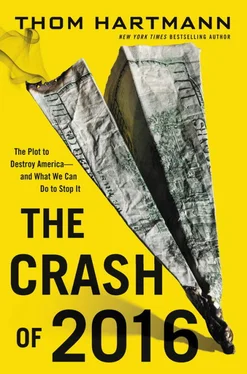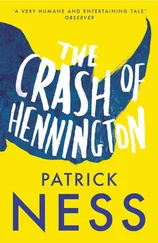They became an export machine. In 2011, they held the second largest trade surplus in the world, over $200 billion (the United States was in debt $800 billion). And they turned into Europe’s primary manufacturing plant, supplying most of the European continent with its goods.
While Germany boasted one of the largest trade surpluses in the world, other European nations were driven into trade deficits. The United Kingdom, France, Spain, Italy, Greece, and Portugal all have some of the largest trade deficits in the world.
Greece’s trade deficit with Germany is startling. In 2009, Greece sold 1.8 billion euros of exports to Germany. But that same year, it bought 6.7 billion euros of imports from Germany.
What all of this meant is that wealth was flying out of indebted European nations such as Greece, Italy, and Spain and accumulating in German banks. And those German banks, flush with cash, became epicenters of lending throughout Europe, since they were able to offer better interest rates than most other nations.
This export machine makes up 40 percent of the German economy today, and has catapulted them to the fourth largest economy in the world in terms of nominal dollars, despite having a significantly smaller population than the top three nations of Japan, China, and the United States.
So, when the financial panic blew a hole in their economy, the Germans were able to recover quickly. Their enormous manufacturing base immediately went to work recouping lost wealth. In 2012, unemployment dropped to just three million people, the lowest level in twenty years.
Meanwhile their bankers and Economic Royalists went to work recouping the rest.
As the biggest economy in Europe, and with the most cash on hand to help ailing nations, Germany has been driving the Troika’s agenda across Europe. It helps, too, that the European Central Bank is headquartered in Frankfurt.
The people of Germany may have kept their own Economic Royalists shackled and incapable of feasting on the middle class the way they’ve done in the United States. [2]Meanwhile, the German people have quietly endorsed the pillaging of fellow European nations through austerity.
Germany could have endorsed a plan to have the European Central Bank print more euros, and fund stimulus programs in indebted nations to put people in Greece and Spain back to work growing their respective economies (similar to what FDR did in the 1930s and what Germany did domestically after the 2007–08 financial panic).
But instead, German bankers exploited the debt crisis to turn the rest of Europe into indebted slaves. They funneled hundreds of billions of dollars in loans through bailout programs across Europe to ensure that foreign depositors (many of whom were Germans) are repaid by debtor nations. And in return for those bailouts, Germany demanded that Greece, Spain, Portugal, and Ireland carry out painful spending cuts that crippled working people in those nations who were employed by or relied on the government.
Despite the intended purpose of austerity, research from the United Kingdom’s National Institute of Economic and Social Research found, in October 2012, that debt-to-GDP ratios increased significantly higher and faster under austerity than if no austerity had been imposed at all. 159
But reducing the debt-to-GDP ratios was never the intent of the Royalists allied with Germany and the technocrats at the Troika. Instead, their goal was to harvest Europe in the same way Bain Capital would have done to an American business. Bulldoze the economy and working class, sell off the commons, and then prime Greece to be sold off to foreign investors (many of them German) at fire-sale prices.
With the entire continent still racked by economic turmoil five years into the austerity era, Germany has profited immensely.
Since it is the only stable economy left, investors actually pay Germany to take a loan from them. In 2012, Germany was paying a 0.01 percent interest rate on about $5 billion worth of debt. As Der Spiegel notes, “Amid the ongoing euro crisis, Germany is one of the few borrowers that are still regarded as a safe haven. Many investors would rather lend the government money at bargain-basement rates than risk losses.” 160
Der Spiegel goes on to say, “It has become a rule of the euro crisis: While a number of Eurozone countries suffer, Germany profits. The crisis may slow economic growth in Germany, but there are also a raft of crisis-related mechanisms that help the country profit at the expense of other nations.”
As of 2013, Germany has spent or committed to spend nearly $400 billion on these “crisis-related mechanisms” aimed at saving the Eurozone in a way that ensures German dominance over the continent on a scale not seen since Hitler toppled Paris.
George Soros criticized the German response to the euro crisis, saying, “Germany did the minimum that was necessary to preserve the euro but no more! And that is what maintained the crisis conditions which are now four years old.” 161
He remarked on what Europe looks like now under German financial rule, “I am afraid Europe is in an existential crisis. The debtor countries are subordinate to the dictates of the creditor countries and have effectively been relegated to second-class memberships.” 162
In fact, in January 2012, when it looked like Greece might reject a bailout and leave the euro, Germany proposed ousting the democratically elected government of Greece and installing a European commissioner (think Detroit financial manager) with the power to rewrite the national budget and make sure that Greece takes its medicine prescribed by Germany.
Economist Richard Wolff remarked to me on the Greece situation, in which Royalists are squeezing whatever they can out of the population, “The irony is, when you look back at the history of empires, it has been that narrowness, that failure to look at the long-term, that absorbed self-interest, that has been the final end of those empires.” 163
The question asked in 2013 in Europe was just how far were Germany and the Troika willing to go? Not only how much more money are they willing to spend keeping the Eurozone intact but just how ruthless will they be in their continuing demands for austerity as governments in Greece and Spain unwind into austerity death spirals, thus deepening the debt crisis?
After all, if Germany destroys Europe’s economy, won’t they destroy their own consumer base?
Not necessarily. Based on the way they’re structuring their trade relations, Germany is able to see the Eurozone out to its bitter end.
Like the Economic Royalists in America who’ve sold out the middle class to capture emerging markets in the developing world, the Germans are preparing for a post-Europe export economy.
As the BBC reported in late 2012, “German businesses are becoming less and less reliant on selling to Eurozone countries and are becoming more and more successful in selling to China and the leading emerging markets.” 164
Since 2000, Germany’s trade to European partners has dropped significantly from over 45 percent to 38 percent in 2012, and it is projected to be 34 percent by 2020.
Meanwhile trade to the BRIC nations—Brazil, Russia, India, and China—is surging from 3.9 percent in 2000 to almost 12 percent in 2012, and projected to be 24 percent in 2020.
The BBC notes the significance of China in Germany’s trade strategy, reporting, “What is particularly striking is that in eight years German trade with China alone is projected to be 15.6 percent of the total, according to the trends, or not far off double the share represented by Germany’s most important Eurozone trading partner, France.”
So just as the European continent is becoming more and more reliant on Germany, Germany is gearing up to cut the strings loose. Pegging the emergence of China in Germany’s trade relations, the BBC notes, “To put it another way, by 2015 it will be so obvious to the German people that it is business with China that is making them richer that their incentive to show fiscal solidarity with Spain and Italy—to use German wealth to underpin the recovery of weaker Eurozone economies—will be even less than it is today.”
Читать дальше












